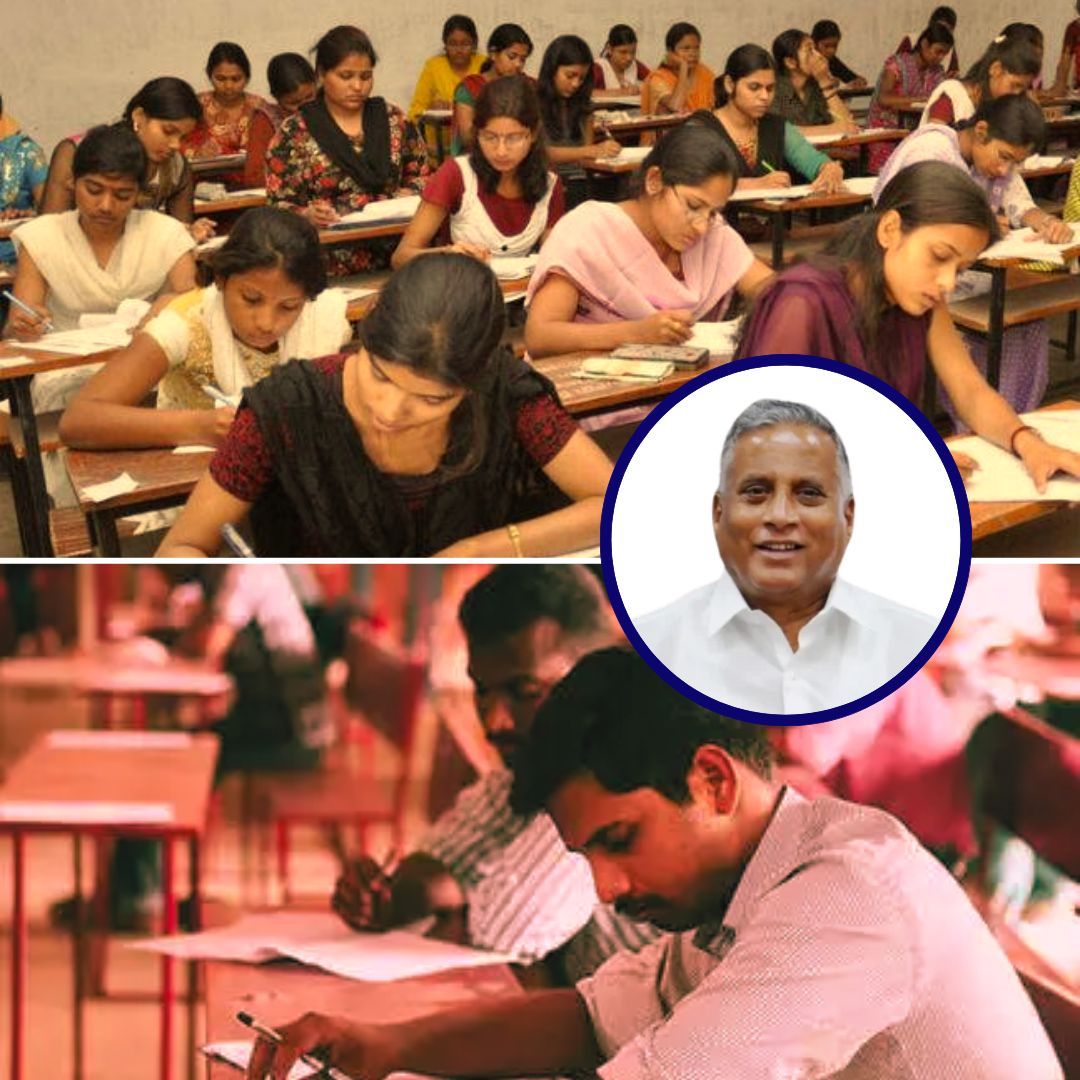A contentious directive in the Railway Nursing Superintendent exam admit cards, asking candidates to remove religious symbols like mangalsutras and janivaras, sparked nationwide outrage among Hindu groups. Scheduled for April 28–30, the exam’s guidelines faced swift backlash for allegedly infringing on religious freedoms.
Following interventions by Union Minister V. Somanna and pressure from organisations like the Vishwa Hindu Parishad (VHP), the Railway Ministry withdrew the instruction, clarifying that religious symbols would be permitted. The controversy highlights the ongoing tension between exam security protocols and cultural sensitivities in India.
Exam Guidelines Revised Amid Nationwide Criticism
The controversy began when candidates received admit cards for the Mangaluru-based exam centre, which explicitly prohibited “all ornaments, including mangalsutras, earrings, nose pins, rings, bracelets, and janivaras.” While the Railway Recruitment Board (RRB) stated these rules were standard security measures to prevent malpractice, the inclusion of religious symbols drew sharp criticism.
VHP Karnataka secretary Sharan Pumpwell condemned the move as “anti-Hindu,” emphasising that “asking married women to remove mangalsutras is an attack on Hindu traditions.” Social media amplified the outrage, with hashtags like Respect Religious Freedom trending.
Within hours, Union Minister of State for Railways V. Somanna directed officials to revise the guidelines, stating, “No candidate will be forced to remove religious symbols. We respect India’s diversity.”
Political Reactions and Precedents
The issue quickly turned political, with Karnataka Deputy CM D.K. Shivakumar criticising the BJP-led central government: “This shows the BJP’s double standards-they talk of Hindu pride but allow such rules.” The controversy mirrors recent incidents during Karnataka’s Common Entrance Test (CET), where invigilators asked students to remove sacred threads.
BJP MP Capt. Brijesh Chowta defended the Railway Ministry’s swift reversal, calling it “a testament to our commitment to Hindu values.” Meanwhile, opposition leaders like Siddaramaiah (Congress) demanded accountability, questioning why such guidelines were approved initially.
The RRB later issued a clarification, retaining bans on electronics and personal items but excluding religious ornaments.
Broader Implications for Exam Security
Experts argue that while preventing cheating is critical, blanket bans on religious symbols reflect poor cultural sensitivity. “Exam guidelines must distinguish between security threats and personal faith,” said Dr. Anjali Rao, a sociologist.
The RRB’s original directive cited past cases of candidates hiding Bluetooth devices in ornaments, but critics note that mangalsutras and janivaras are visibly symbolic, not concealable. The National Testing Agency (NTA), which oversees major exams like NEET, permits religious attire, setting a precedent for accommodating cultural practices.
The Karnataka State Human Rights Commission has also sought a report from the RRB, emphasising the need for non-discriminatory policies.
The Logical Indian’s Perspective
At The Logical Indian, we believe that security and tradition need not be mutually exclusive. The Railway Ministry’s corrective action is commendable, but recurring incidents suggest systemic oversight in policy drafting. Institutions must engage community leaders and legal experts to design inclusive guidelines that uphold both integrity and constitutional rights.
As India modernises its examination systems, how can we ensure that technology-driven security measures respect the country’s pluralistic ethos? Share your thoughts on fostering a dialogue between tradition and transparency.











